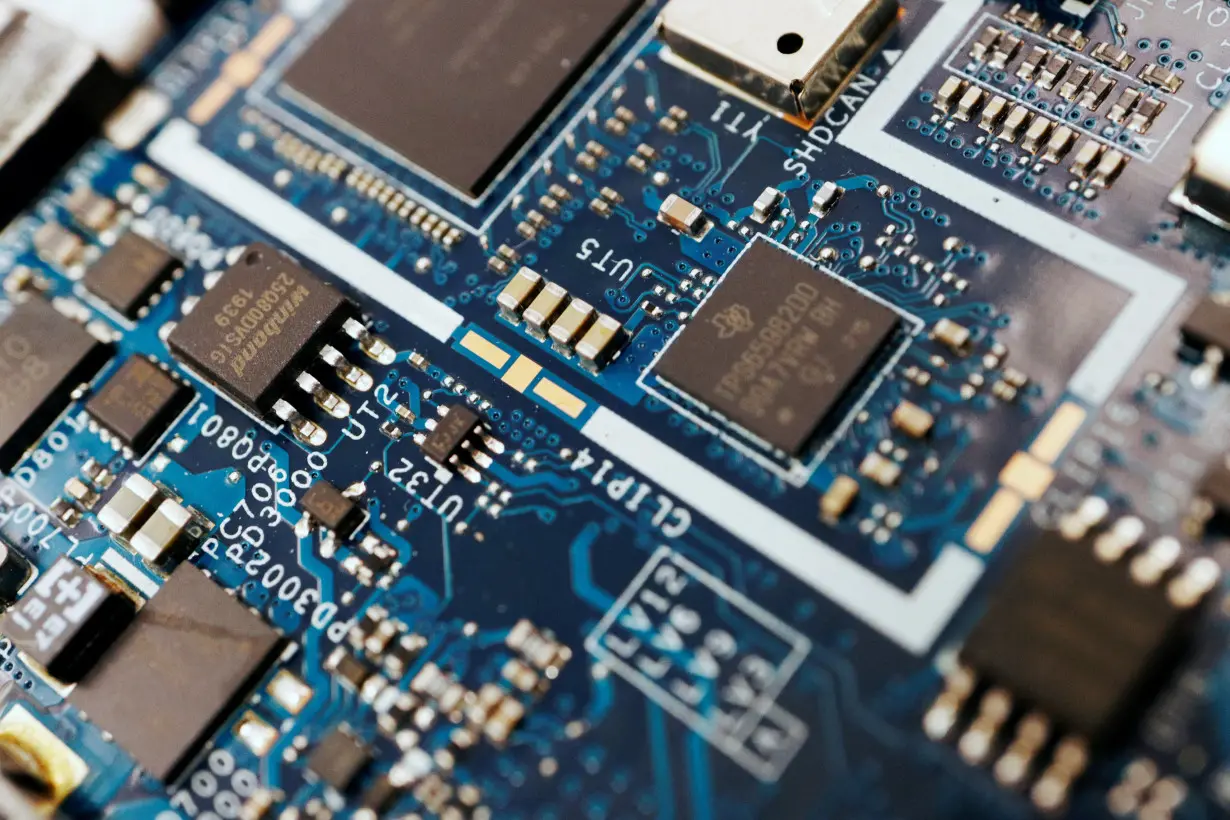By Noel Randewich
(Reuters) -U.S. chip stocks plummeted on Thursday in their worst day since 2020 after a conservative forecast from Arm Holdings dampened investor optimism about artificial intelligence and data signaled a cooling economy.
Shares of Arm sank 16% after the British chip designer's forecast sparked worries that returns from a spending frenzy on AI computing by Microsoft, Alphabet, Amazon, Meta Platforms and other megacaps would be slower to materialize than previously expected.
"Arm is responsible for a lot of the impact on semiconductors today after their guidance," said Art Hogan, chief market strategist at B. Riley Wealth.
"It's an important company, but perhaps not as important as we made it this year in terms of valuation," Hogan added.
Losses in chipmakers' shares and the broader market accelerated after a slew of data spurred concerns the economy may be slowing faster than anticipated while the Federal Reserve maintains its restrictive monetary policy.
The S&P 500 dropped 1.4%. The Nasdaq fell 2.3%, leaving it down almost 8% from its record high close on July 10.
In extended trade, Intel slumped 13% after it said it was cutting 15% of its workforce and suspending its dividend as the chipmaker pursues a turnaround centered around its loss-making manufacturing business.
During Thursday's session, the PHLX semiconductor index tumbled 7.1%, its worst one-day percentage decline since March 2020 when the coronavirus pandemic sent global markets into a tailspin.
That undid a 7% spike in the chip index on Wednesday after a strong Advanced Micro Devices forecast and Microsoft's surge in quarterly spending related to AI sent Nvidia and other semiconductor stocks surging.
Nvidia dropped almost 7, giving back gains a day after the dominant AI chipmaker's stock soared 13% and added $330 billion in market capitalization, a record one-day gain for any company on Wall Street.
Nvidia shares remain 121% higher in 2024 but down 19% from their record high close on June 18.
The chip index remains up 16% in 2024.
(Reporting by Noel Randewich; Editing by Marguerita Choy and Stephen Coates)

 Why AP called Arizona for Trump
Why AP called Arizona for Trump
 Trump wins Arizona, sweeping all seven battleground states, Edison Research says
Trump wins Arizona, sweeping all seven battleground states, Edison Research says
 China, Indonesia enhance ties with key deals on lithium, green energy, tourism
China, Indonesia enhance ties with key deals on lithium, green energy, tourism
 Taliban administration officials to attend UN climate conference in Azerbaijan
Taliban administration officials to attend UN climate conference in Azerbaijan
 Soldier with Yemen's exiled government opens fire, killing 2 Saudi troops and wounding another
Soldier with Yemen's exiled government opens fire, killing 2 Saudi troops and wounding another
 Trump has vowed to kill US offshore wind projects. Will he succeed?
Trump has vowed to kill US offshore wind projects. Will he succeed?
 US to speed up interceptor missiles delivery to Ukraine, WSJ reports
US to speed up interceptor missiles delivery to Ukraine, WSJ reports
 Jalen Milroe runs wild as No. 11 Alabama thrashes No. 14 LSU 42-13
Jalen Milroe runs wild as No. 11 Alabama thrashes No. 14 LSU 42-13
 Justin Allgaier wins 1st NASCAR Xfinity title, capping comeback by passing Hill and Custer late
Justin Allgaier wins 1st NASCAR Xfinity title, capping comeback by passing Hill and Custer late
 Evan Mobley scores 23 points and Cavaliers rally past Nets 105-100 to remain perfect at 11-0
Evan Mobley scores 23 points and Cavaliers rally past Nets 105-100 to remain perfect at 11-0

